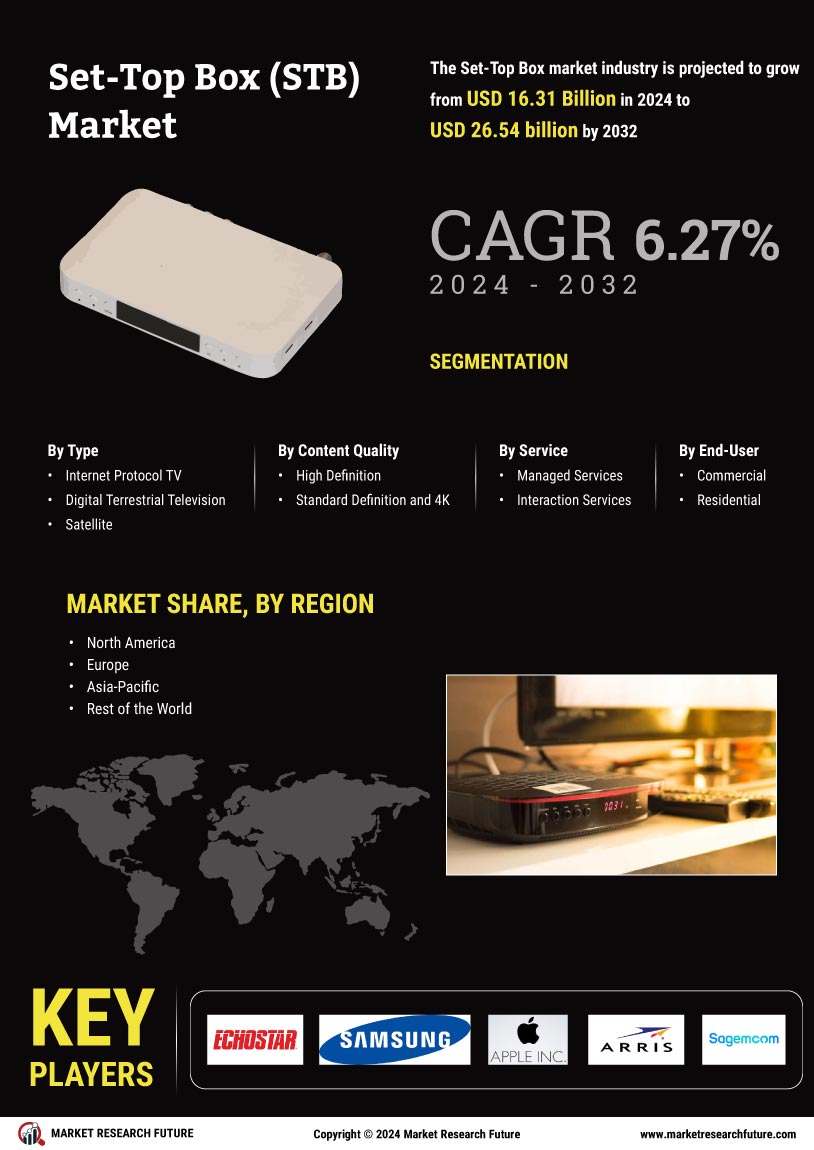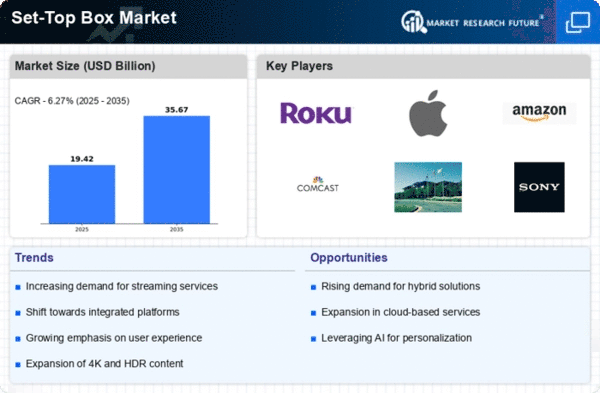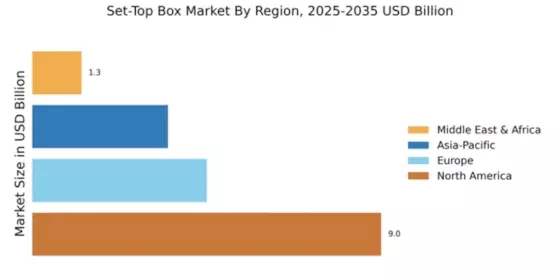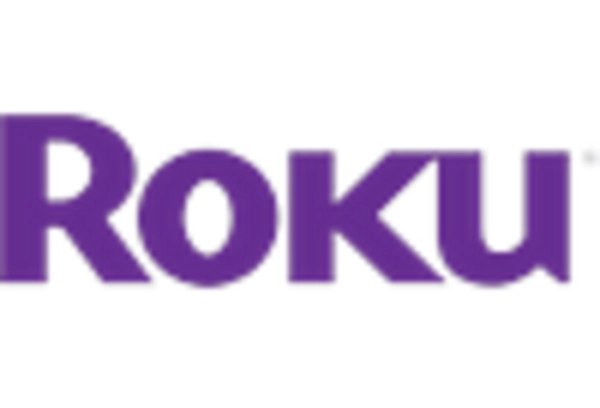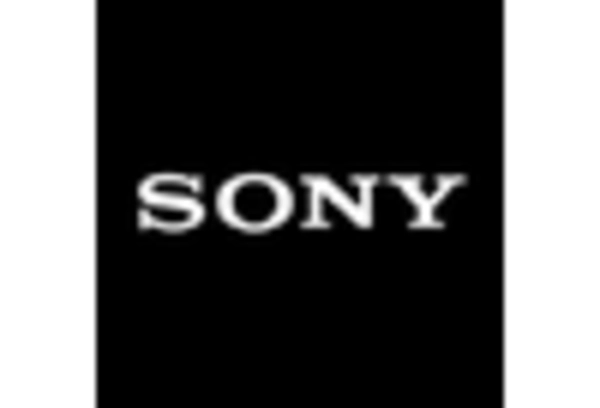Market Growth Projections
The Global Set-Top Box Market (STB) Market Industry is projected to experience robust growth, with estimates indicating a market value of 35.7 USD Billion by 2035. This anticipated growth reflects a compound annual growth rate of 6.27% from 2025 to 2035, driven by various factors including technological advancements, increased demand for high-definition content, and the proliferation of smart home devices. The market's expansion is indicative of a broader trend towards digitalization in entertainment consumption, as consumers increasingly seek enhanced viewing experiences. This growth trajectory underscores the evolving landscape of the STB market and its potential for future development.
Growth of Smart Home Ecosystems
The Global Set-Top Box Market (STB) Market Industry is witnessing a transformation due to the growth of smart home ecosystems. As consumers increasingly adopt smart home technologies, STBs are evolving to integrate with these systems, allowing for enhanced control and automation of home entertainment. This integration not only simplifies user interaction but also positions STBs as central hubs within smart homes. The growing interest in interconnected devices is likely to drive demand for STBs that offer compatibility with various smart home platforms, thereby expanding their market presence. This trend aligns with the overall trajectory of the market, which is set to experience substantial growth in the coming years.
Rising Demand for Streaming Services
The Global Set-Top Box Market (STB) Market Industry experiences a notable surge in demand for streaming services, driven by consumer preferences for on-demand content. As of 2024, the market is valued at approximately 18.3 USD Billion, reflecting a shift from traditional cable to internet-based platforms. This transition is indicative of changing viewing habits, where consumers favor flexibility and personalization in their entertainment choices. Major players in the industry are adapting by integrating advanced features into their STBs, such as support for 4K resolution and enhanced user interfaces, which cater to the evolving expectations of viewers.
Increasing Adoption of 4K and 8K Content
The Global Set-Top Box Market (STB) Market Industry is significantly influenced by the increasing adoption of 4K and 8K content among consumers. As more content providers offer high-definition programming, there is a corresponding demand for STBs capable of delivering superior video quality. This trend not only enhances the viewing experience but also encourages consumers to invest in compatible devices. The proliferation of 4K and 8K content is likely to drive the market's growth, as consumers seek to upgrade their STBs to fully enjoy the high-resolution offerings available. This shift is expected to support the market's expansion towards a projected value of 35.7 USD Billion by 2035.
Regulatory Support for Digital Transition
The Global Set-Top Box Market (STB) Market Industry benefits from regulatory support aimed at facilitating the digital transition in broadcasting. Governments worldwide are implementing policies that encourage the adoption of digital technologies, which in turn drives demand for STBs. This regulatory environment fosters innovation and competition among manufacturers, leading to the development of advanced STB solutions that meet consumer needs. As digital broadcasting becomes the norm, the market is expected to thrive, supported by favorable regulations that promote accessibility and affordability of STB devices. This supportive framework is likely to enhance the overall growth trajectory of the market.
Technological Advancements in STB Features
Technological innovations play a crucial role in shaping the Global Set-Top Box Market (STB) Market Industry. The integration of features such as voice control, artificial intelligence, and smart home compatibility enhances user experience and engagement. These advancements not only improve functionality but also drive consumer interest in upgrading their existing devices. As the market evolves, manufacturers are increasingly focusing on developing STBs that offer seamless connectivity with various devices, thereby expanding their appeal. This trend is expected to contribute to the projected growth of the market, with a compound annual growth rate of 6.27% anticipated from 2025 to 2035.
